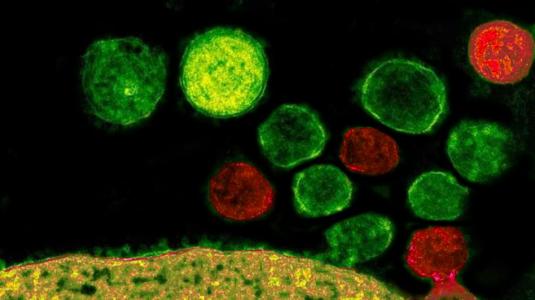ZJU Scientists Discover Vital Role of Tumor-derived Exosomes in Suppressing Innate Antiviral Immunity
Feb 05, 2018|hufei |

A fraction of severe cancer patients may suffer from an unbalanced immune system. As a consequence, they are subject to viral disease and thereby develop and even die of certain complications. It is evident that malignancies can compromise innate immunity, but their mechanisms remain largely obscure at present.
The research team led by Prof. Zhang Long of the Life Sciences Institute, Zhejiang University, discovers that, via tumor-derived exosomes (TEXs), cancers are able to transfer the activated epidermal growth factor receptor (EGFR) to host macrophages and thereby suppress innate antiviral immunity. Screening of the human kinome identifies the kinase MEKK2 in macrophages as an effector of TEX-delivered EGFR that negatively regulates the antiviral immune response. In the context of experimental tumor implantation, MEKK2-deficient mice are more resistant to viral infection than are wild-type mice. Injection of TEXs into mice reduced innate immunity, increases viral load and increased morbidity in an EGFR- and MEKK2-dependent manner. MEKK2 phosphorylated IRF3, a transcription factor crucial for the production of type I interferons; this triggers poly-ubiquitination of IRF3 and blocks its dimerization, translocation to the nucleus and transcriptional activity after viral infection.
These findings identify a mechanism by which cancer cells can dampen host innate immunity and potentially cause patients with cancer to become immune-compromised. This research is therefore of considerable clinical significance, opening up a new theoretical approach to curing terminal cancer. The field of exosomes is an emerging research direction and their physiological and pathogenic function is yet to be explored. Thus, this research offers a new method for the analysis of exosomes.
Relevant findings are published in the January 22 issue of the journal of Nature Immunology.







